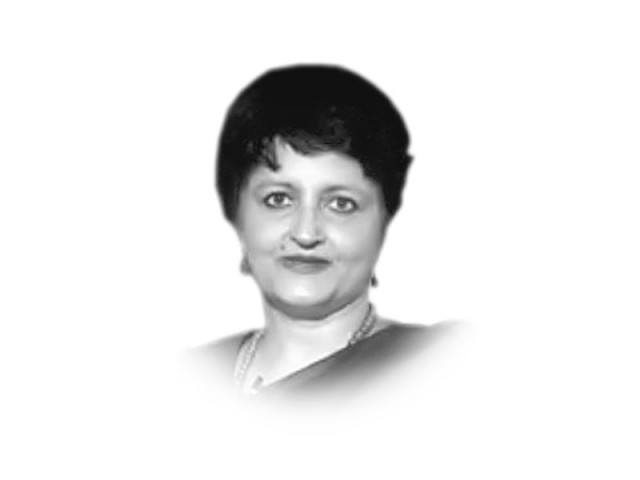Observing Pakistan
The new generation in both India and Pakistan is fed up with the old, and this is where hope of change really lies.

The writer is a consulting editor with The Statesman and writes widely for several newspapers in India
Undeterred by the mind-blowing violence and personal tragedies, such as the kidnapping of former prime minister Yousaf Raza Gilani’s son, Pakistanis have refused to back off from their determination to vote. The terrorists have unleashed a terrible wave of violence killing nearly 150 persons in poll-related attacks, have issued threats, warning the people of dire consequences if they participate in the electoral process, but have failed completely to shackle their democratic aspirations. Thousands are turning up for political rallies, with the young generation virtually taking the lead to beat the drums of enthusiasm and hope. This is not just interesting for Indians watching from across the border, but “awesome”, to use a favourite younger generation term.
The role of the Pakistan Army is significant. Army Chief General Ashfaq Parvez Kayani has been steadfast in his earlier promise of supporting the democratic process. And this is exactly what the all-powerful army is doing — providing security and allowing the political parties the space to battle it out on the political field. Or so it seems from New Delhi, where the “hands off” approach of the Pakistan Army is being watched with tremendous interest. As a result, the results are up for grabs, and no one can predict the outcome with any certainty. General Kayani’s assurance to Pakistan on the eve of polling day gave an insight into the approach of the army, “I assure you that we stand committed to wholeheartedly assisting and supporting the conduct of free, fair and peaceful elections, to the best of our capabilities and remaining within the confines of the Constitution. I also assure you that this support shall solely be aimed at strengthening democracy and rule of law in the country.”
For once, the army chief’s remarks in support of the democratic process were received without a heavy dose of salt in New Delhi. There is widespread recognition in India that the elections will be held, with the army working alongside the election machinery to ensure this. And there can be no greater testimony to the Pakistanis’ desire for democracy, than the silent resolve of the people to face and counter the terrorists. Imran Khan’s video address from his hospital bed to thousands of his supporters in Islamabad is an indication of the aspirations propping up the violence-ridden polls in Pakistan. So far, the election process has been transparent, and there have been no reports of foul play by the political parties in the fray.
Interestingly, General Kayani also gave an idea of army plans after the polls in his recent address at the Youm-e-Shuhda programme. A between-the-lines analysis does point to: 1) the army has recognised the people’s desire for democracy, and took a deliberate decision to stay out of the political picture; 2) the army is optimistic that this decision will play out to its advantage, in that the new government with the people’s mandate will establish levels of cooperation with the army to help it in its increasingly difficult war against terror and thereby, strengthen it on the ground; 3) new political and military links supported by a grateful people to wage the war against terrorism with new policies and new determination.
India will have to factor in the new aspirations, the political processes, the self-trimmed role of the army, the younger generation, et al, into its understanding of Pakistan after these elections. The rigidity reflected on Indian television news channels that insists on looking at all developments through the prism of terrorism will result in misplaced shadow-boxing where much of Indian energy and resources will be wasted in formulating responses on the basis of old parameters instead of the new shifts within Pakistan. The new generation in both India and Pakistan is fed up with the old, and this is where hope of change really lies.
Published in The Express Tribune, May 11th, 2013.















COMMENTS
Comments are moderated and generally will be posted if they are on-topic and not abusive.
For more information, please see our Comments FAQ